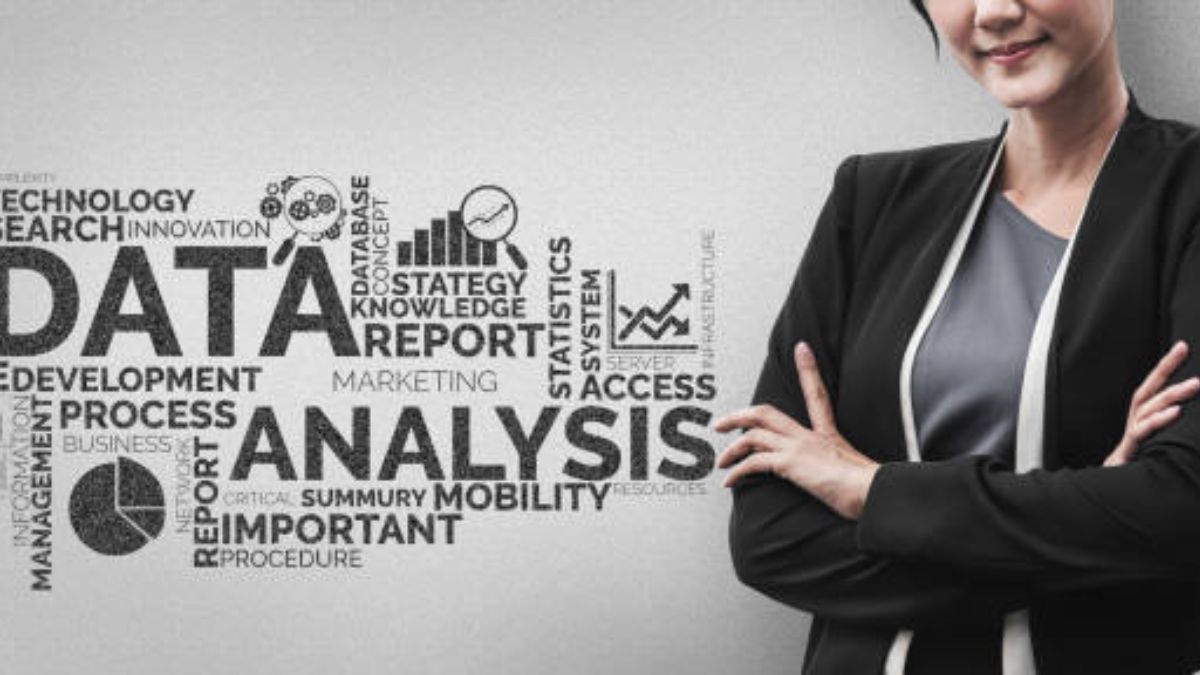In today’s digital era, every small company faces the critical need to safeguard sensitive data. Breaches in security can lead to catastrophic financial losses, reputational damage, and operational setbacks. The rise in cyberattacks targeting smaller enterprises makes it even more essential for businesses to prioritize data security. Fortunately, various effective solutions exist to protect sensitive company data from hackers and other threats. Let’s explore the best data security solutions that small companies can adopt to secure their operations and maintain customer trust.
Why Data Security Matters for Small Companies
Small companies often mistakenly believe that cybercriminals won’t target them due to their size. However, this couldn’t be further from the truth. Cybercriminals frequently target smaller businesses, assuming they lack robust security measures. A single data breach can cost a business thousands of dollars, not to mention the irreparable harm to its reputation. Thus, securing business data becomes paramount to ensuring the company’s survival and success.
Understanding the Cybersecurity Threat Landscape
Small companies face various cybersecurity challenges, ranging from phishing scams to ransomware attacks. The rise in cyberattacks targeting small businesses highlights the need for a comprehensive security approach. It’s not just large corporations that hackers target; small companies are frequently exploited due to their perceived weaker defenses. Therefore, to mitigate potential threats, businesses must take a proactive stance in data security. Below are the best data security solutions designed to tackle common cyber threats for small companies.
Encryption as a First Line of Defense
Many cybersecurity experts consider encryption a critical component of any data security plan. Whether you store data on-premises or in the cloud, encryption can shield your sensitive business information from external threats. Companies should implement full-disk encryption, email encryption, and encrypted file transfers to keep data secure.
Why Two-Factor Authentication Is a Must
Two-factor authentication (2FA) adds an extra layer of security to login procedures. It requires users to verify their identity using two separate methods before gaining access to a system. This reduces the chances of hackers breaking into accounts, even if they manage to steal login credentials. For small companies, adopting 2FA for all employees helps significantly enhance security without needing major technological investments. Small companies can implement 2FA on various platforms, including email, accounting software, and cloud services.
Deploying a Robust Firewall for Network Protection
A firewall monitors incoming and outgoing traffic, acting as a barrier between your company’s network and potential threats. A firewall helps prevent unauthorized access, blocking harmful traffic before it penetrates your internal systems. Small businesses should invest in a firewall that matches their needs, whether it’s hardware-based or software-based. By controlling the data entering and leaving the network, a firewall prevents many cyberattacks from infiltrating your business systems.
Securing Data in the Cloud
Many small businesses rely on cloud services for their flexibility, cost-efficiency, and scalability. However, cloud environments can also become targets for cyberattacks if not properly secured. When selecting a cloud provider, companies should ensure that robust security features like encryption, multi-factor authentication, and data backup are in place. It is also vital to regularly audit and review the security settings of cloud platforms to ensure they meet your company’s evolving needs.
Regular Software Updates and Patching
One of the simplest and most effective ways to protect your company’s data is by ensuring all software is up to date. Cybercriminals often exploit known vulnerabilities in outdated software to gain access to sensitive information. Keeping software current ensures that any security holes are patched, and the system remains resilient against potential attacks. Small companies should implement automatic updates whenever possible and encourage employees to promptly update their devices as well.
Implementing Secure Password Policies
Weak passwords are one of the leading causes of data breaches. Small companies must enforce secure password policies to protect their systems. Encouraging employees to use long, complex passwords containing a mix of numbers, symbols, and letters will reduce the risk of unauthorized access. Additionally, businesses can benefit from password management tools that store and generate strong passwords, making it easier for employees to follow secure practices.
Data Backup Solutions for Disaster Recovery
No matter how robust your data security measures are, it’s essential to prepare for worst-case scenarios. Data backup solutions ensure that if a cyberattack or system failure occurs, you can quickly restore lost information. Further, Small companies should perform regular backups and store copies in a secure, offsite location. Cloud backup solutions offer small businesses an efficient and affordable way to ensure data recovery in the event of a disaster.
Implementing Endpoint Security
With the increasing use of remote work and mobile devices, small companies must focus on endpoint security. Endpoint security involves protecting all devices that connect to the company’s network, including laptops, smartphones, and tablets. By deploying antivirus software, firewalls, and remote wipe capabilities, companies can secure these endpoints from potential threats. Further, It’s critical for small businesses to monitor and secure all endpoints, as they can often become weak points for cybercriminals to exploit.
Employee Education and Awareness
One of the most overlooked yet vital aspects of data security is employee education. Small companies must ensure that their employees understand the importance of data security and the role they play in protecting company information. Regular training sessions on recognizing phishing attempts, secure file handling, and proper use of company systems can significantly reduce the risk of human error leading to security breaches. A well-informed workforce can act as the first line of defense against potential cyberattacks.
Intrusion Detection and Prevention Systems (IDPS)
Intrusion Detection and Prevention Systems (IDPS) are essential tools for identifying and preventing potential threats in real-time. An IDPS monitors network traffic, scanning for suspicious activity, and can automatically block any malicious attempts to access your system. Moreover, For small companies, implementing an IDPS can provide peace of mind, knowing that there’s an active system monitoring for potential threats. It helps prevent unauthorized access and stops breaches before they cause damage.
Security Audits and Regular Assessments
Conducting regular security audits is a crucial step for any business looking to improve its data security measures. Security audits involve reviewing all current data protection systems, identifying weaknesses, and implementing solutions to strengthen those areas. Further, Small companies should regularly assess their security infrastructure to ensure it meets current industry standards and adapts to new emerging threats. This proactive approach minimizes the risk of vulnerabilities leading to a data breach.
Utilizing Virtual Private Networks (VPNs)
A Virtual Private Network (VPN) allows employees to securely access the company’s network, even when working remotely. VPNs encrypt internet traffic, preventing hackers from intercepting sensitive data. Small companies with remote workers or employees accessing company systems from public networks should adopt VPNs as part of their data security strategy. VPNs provide an additional layer of security, ensuring sensitive information remains protected no matter where employees work.
Data Loss Prevention (DLP) Tools
Data Loss Prevention (DLP) tools help companies prevent unauthorized sharing of sensitive information. DLP solutions monitor and control the movement of data across the network to ensure it stays within authorized channels. Small businesses dealing with highly sensitive data, such as customer information or financial records, should consider deploying DLP tools to prevent accidental or malicious data leaks. These tools can help ensure that confidential information remains within the company and doesn’t fall into the wrong hands.
Mobile Device Management (MDM)
Many small companies allow employees to use personal devices for work purposes. This trend, known as Bring Your Own Device (BYOD), increases productivity but also introduces new security risks. Mobile Device Management (MDM) solutions allow businesses to secure, monitor, and manage mobile devices that access company data. MDM tools enable companies to enforce security policies, track lost or stolen devices, and remotely wipe data from compromised devices.
The Role of Managed Security Services Providers (MSSPs)
Small businesses with limited in-house IT resources can benefit from partnering with Managed Security Services Providers (MSSPs). MSSPs offer professional security solutions that include monitoring, threat detection, and incident response. Moreover, Outsourcing data security to an MSSP ensures that your company has access to the latest cybersecurity technologies without the need for a large internal team. This can save small companies both time and money while ensuring robust data protection.
Compliance with Industry Standards and Regulations
For small companies operating in specific industries, adhering to data security regulations and standards is not optional. Whether it’s GDPR, HIPAA, or PCI DSS, regulatory compliance helps protect both the business and its customers. Staying compliant ensures your company meets industry standards for protecting sensitive data, minimizing the risk of legal repercussions. However, Regularly review compliance requirements and seek legal counsel to ensure your data security practices align with industry-specific regulations.
Using Artificial Intelligence and Machine Learning for Cybersecurity
Artificial Intelligence (AI) and Machine Learning (ML) have revolutionized the cybersecurity landscape. Small companies can leverage AI-driven tools to detect, analyze, and respond to potential threats in real time. These technologies help businesses stay ahead of evolving cyber threats by continuously learning from previous attacks and adapting defenses. Investing in AI-based cybersecurity solutions can enhance your company’s ability to detect anomalies and prevent breaches before they happen.
Cyber Insurance for Added Protection
While data security measures are essential, small companies should also consider cyber insurance as an added layer of protection. Cyber insurance helps cover financial losses that result from data breaches, ransomware attacks, or system failures. Although it doesn’t replace a robust security strategy, it provides peace of mind by offering financial assistance if the worst happens. Small businesses should explore different cyber insurance policies to find one that meets their needs and risk profile.
FAQs
What are the most important data security solutions for small businesses?
Encryption, firewalls, two-factor authentication, and regular backups are essential for any small business’s data security strategy.
Why is employee training crucial for data security?
Employees can unknowingly become the weakest link in a company’s defense. Regular training helps prevent human errors leading to breaches.
What is the role of a firewall in network security?
A firewall acts as a barrier between your network and potential threats, blocking unauthorized access before it penetrates the system.
How do encryption tools protect company data?
Encryption converts data into unreadable code, making it nearly impossible for unauthorized users to access sensitive information.
Can small businesses benefit from AI in cybersecurity?
Absolutely. AI-driven security tools can detect, analyze, and respond to potential threats in real-time, helping companies stay ahead of cyber threats.
What is the importance of regularly updating software for data security?
Regular updates patch vulnerabilities that cybercriminals could exploit, ensuring that your systems remain protected against emerging threats.
Conclusion
For small companies, the stakes in data security are high, but with the right tools and strategies, businesses can effectively protect themselves from cyber threats. Implementing solutions such as encryption, firewalls, two-factor authentication, and employee education lays the foundation for robust data protection. Staying proactive with regular security assessments and keeping up with industry standards ensures long-term success and security. Prioritizing data security not only protects sensitive information but also fosters customer trust, which is essential for any small business’s growth and sustainability.











